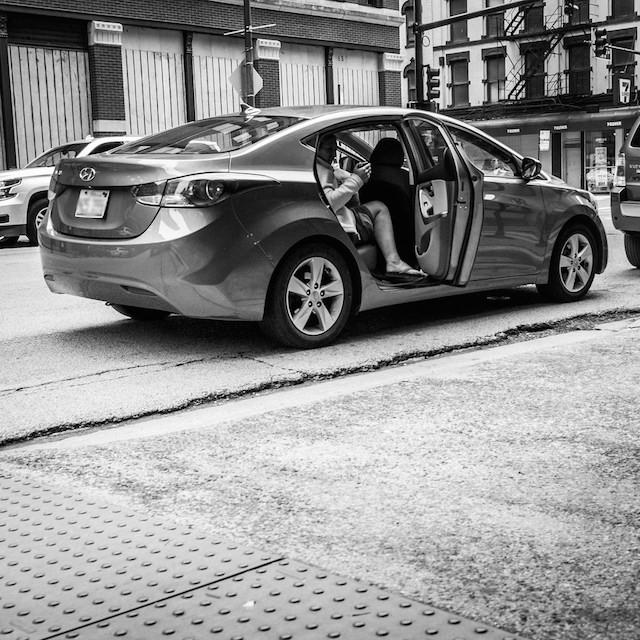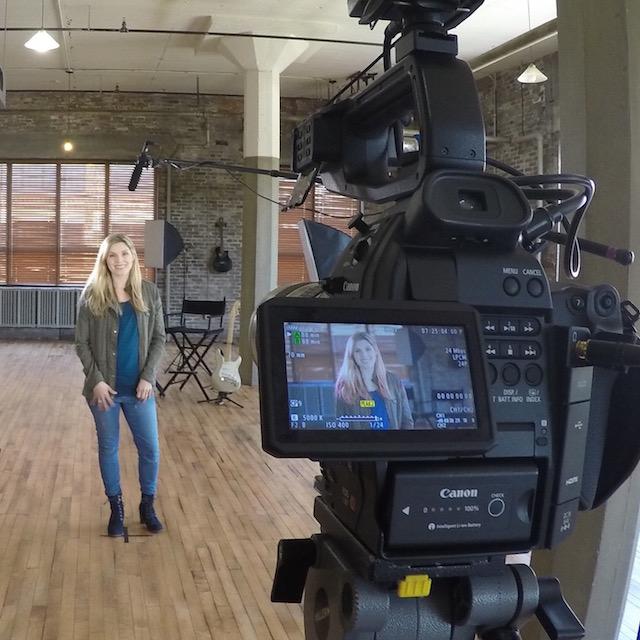I love freelancing. Well, I love the autonomy of it anyway. When my son and daughter were babies, freelance writing allowed me to be present in their budding little lives and still pay some bills and buy wine. And although my 12-year self-employment gig officially ended when I took a job with GoDaddy, I still have one freelance client. Can't quite let go of the dream I guess.
How to make your job prospects suck less
When I came back from two years of teaching English in Bangkok in the late 1980s, America was a different place. I had a college degree (and no debt – thank you, Uncle Sam!) and there were plenty of jobs. Don't like this one? There were two more to choose from.
Not so now, as my 24-year-old son will tell you heatedly. He doesn't have a college degree and has been drifting from one crappy job to another, hating. every. one. Now, some people point to the growing number of task-oriented job services as the antidote to his despair.
I mean, who doesn't want to be a micro-entrepreneur?
If you have a car and no outstanding warrants, Uber, Lyft or grocery delivery service Instacart would be only too happy to hire you. No car? Try Fancy Hands or Amazon’s Mechanical Turk, which pays you to do things computers can't, like choose the best of several photographs or fill out a survey. Prefer manual labor? There's always Task Rabbit or Handy.

The gig economy – blessing or curse?
“With more capability to work remotely and connect with clients across the country, workers see freelancing as a way to 'take back their clock' and create more meaningful, balanced lives.” ~ Sara Horowitz, Founder, Freelancers Union
According to a 2015 study by Freelancer's Union, one in three Americans is currently freelancing – either part-time or as their only source of income.
This isn't a new trend, either.
" target="_blank">Harvard economist Lawrence Katz and Princeton’s Alan B. Krueger found that all of the net employment growth in the U.S. economy from 2005 to 2015 occurred in “alternative” work arrangements. According to an Intuit report, the number of alternative workers will surpass 40 percent of the workforce by 2020.
“Technology has opened doors for workers and employers alike,” says Sara Horowitz, founder and executive director of Freelancers Union. “With more capability to work remotely and connect with clients across the country, workers see freelancing as a way to 'take back their clock' and create more meaningful, balanced lives. Employers, meanwhile, are increasingly seeking nimble and highly specialized workers to take on project-based assignments.”
Done and done. Except.
The gig economy lets you work where and when you like without being tied to a desk or the 9-to-5 grind. Perfect, right? Well. Companies like Uber, Instacart and Fancy Hands don't have to pay taxes on the money you earn, but you do. They also don't have to offer you benefits or even follow minimum wage, overtime or workers comp laws. Surprise! That $1 you just earned is actually 66 cents — no wait, 12 cents , after you pay gas, car upkeep, insurance, electricity and internet.
The gig economy is made up of independent contractors, freelancers and temporary, on-call and contract workers who work less than 35 hours a week.
But the real problem is that when you work for one of these companies, you're a commodity. Even with jobs that require specific skills like CrowdFlower (data mining) and PeoplePerHour (design) or Codeable (programming), you're still just a drone that can be quickly replaced by any one of thousands of others.
The solution? You have to become so skilled at something that you can command higher rates and more say over what jobs you take, and when and where you work.
A freelancer's tale
Ten years ago, Kristina Romero was pursuing a master's degree in writing at University of Southern California when she started making websites for fun. “It was a nice balance to the creative work,” she recalls now, “because developing is very scientific and mathematical. It balanced my brain.” By 2006, friends were asking her to build websites for them. In 2009, Kristina filed for an LLC under the name KR Media & Designs.
A year later, she had the first of her three children — and found her business dovetailed perfectly with her new lifestyle. As any mother will tell you, time is the most important commodity, and freelancing gave Kristina control over hers. She was able to make a good salary while working less than 40 hours per week.
Kristina's AHA! moment came when she got a contract to create an internal WordPress site for Coca-Cola. This led to a three-month contract with Food Network. They were so pleased with Kristina's work that they asked her to stay on for three more months to clean up their WordPress blogs and make them mobile-friendly. She says it was a turning point:
"That is what truly pivoted me from a freelancer to a business owner. Seeing inside the business gave me so much insight. I came out of that and asked myself, ‘Am I a freelancer or am I a business owner … and what does that look like?’”

Kristina's not alone. Freelancers as a whole enjoy a high level of job satisfaction. Sixty percent of those who answered the 2015 Freelancer's Union study, said they were a) earning more than they had previously working for someone else and b) wouldn't go back to a traditional job for any amount of money.
Me next, please
So. How to get that sweet life? All it takes is a skill — preferably one you enjoy using. Got a rich, resonant voice? You could be a voiceover artist. A knack for organizing things? Become a virtual assistant. A way with words? Try writing.
Starting your dream career won't be as easy as creating a Mechanical Turk profile.
No one's gonna give you access to confidential company info if you look like what you are — a novice with no track record. You need some experience to show you can be trusted.
And here's where the gig economy comes in. Start by selling your skills on a network like Upwork or Fiverr. Bookkeeping, Android and C# development, sales, graphic design, social media marketing, data entry — whatever you can do, put it out there.
Consider it the internship of the new millennium: You start by doing gigs to make money, gain experience and make contacts. When you have enough of all three, you bust out on your own. Hell yes.
It's a win-win – for freelancers and for companies looking for skilled labor as needed. The holy grail of the gig economy is the assignment that turns into a contract, no matter how short-term. That's when you know they love you. Make them deliriously happy, then ask for a recommendation you can post on social media. Your business will grow from there.
Your future calls
Two years after her turning point with Food Network, Kristina hired a full-time developer and a virtual assistant. The three of them now manage 40 clients per month. "So many entrepreneurs start out alone, so we tend to teach ourselves," she says. "Getting inside a business as a contract worker is one of the most valuable things you can do. Ultimately you end up having the epitome of what you were going for in the first place: Tremendous flexibility.”
I, for one, am all for that.







